Project Personnel Profile
NURCAN ATALAN-HELICKE
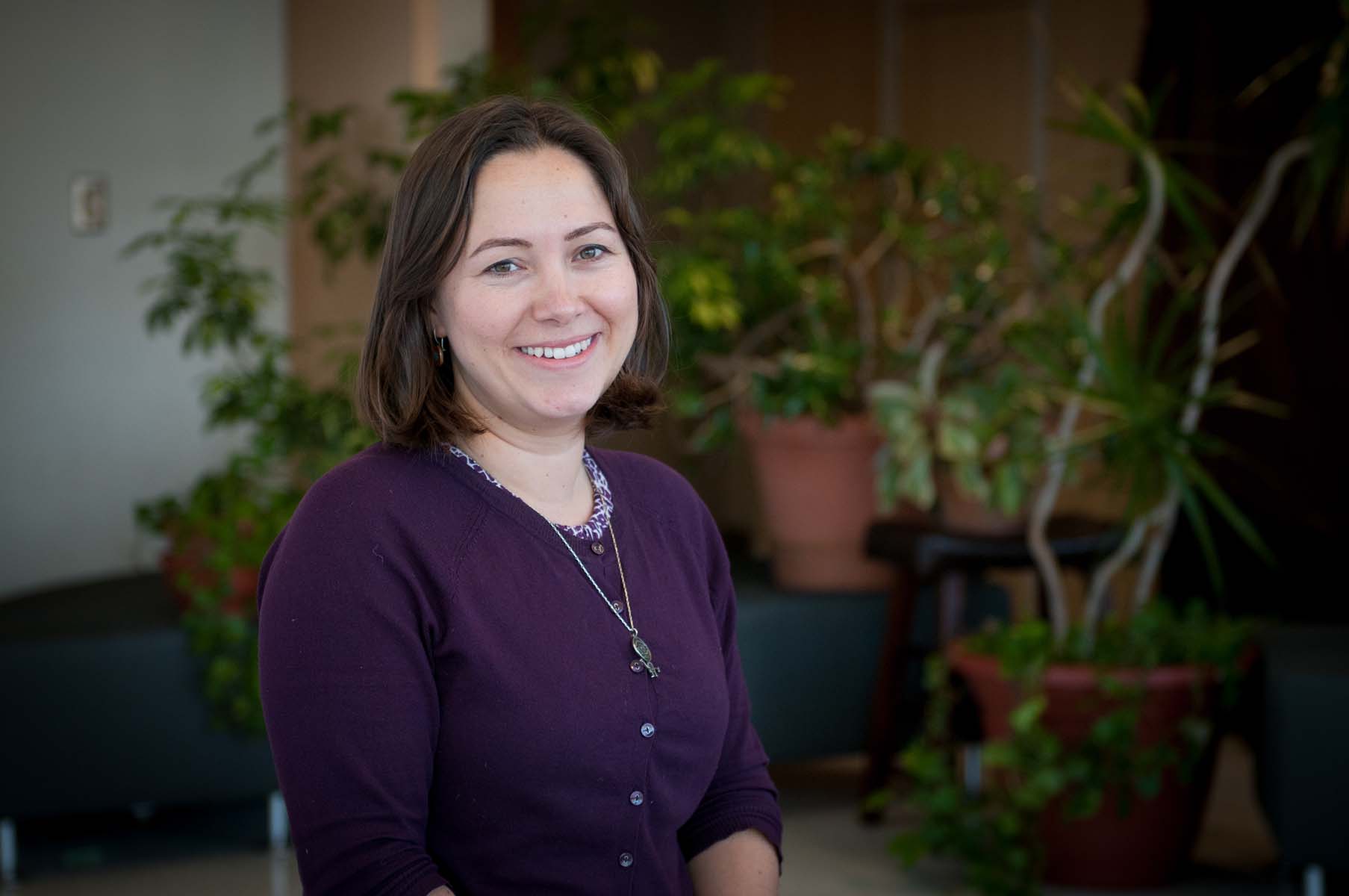
Nurcan Atalan-Helicke is an Associate Professor in the Environmental Studies and Sciences Program. She is an interdisciplinary social scientist, and teaches courses on political ecology, politics of food and human rights and development.
Her research focuses on the intersection of food production and access to clean and healthy food. Her research about conservation of agricultural biodiversity in Turkey, genetically modified food from an Islamic perspective, gender dimensions of halal food consumption has been published in Agriculture and Human Values, Global Environmental Politics, Journal of Environmental Studies and Sciences, Journal of Agriculture, Food Systems and Community Development, Gastronomica and Sociology of Islam. She’s working on a book project about actors and models that revive wheat varieties domesticated about 10,000 years ago in today’s Turkey.
MARY KATE DONOVAN
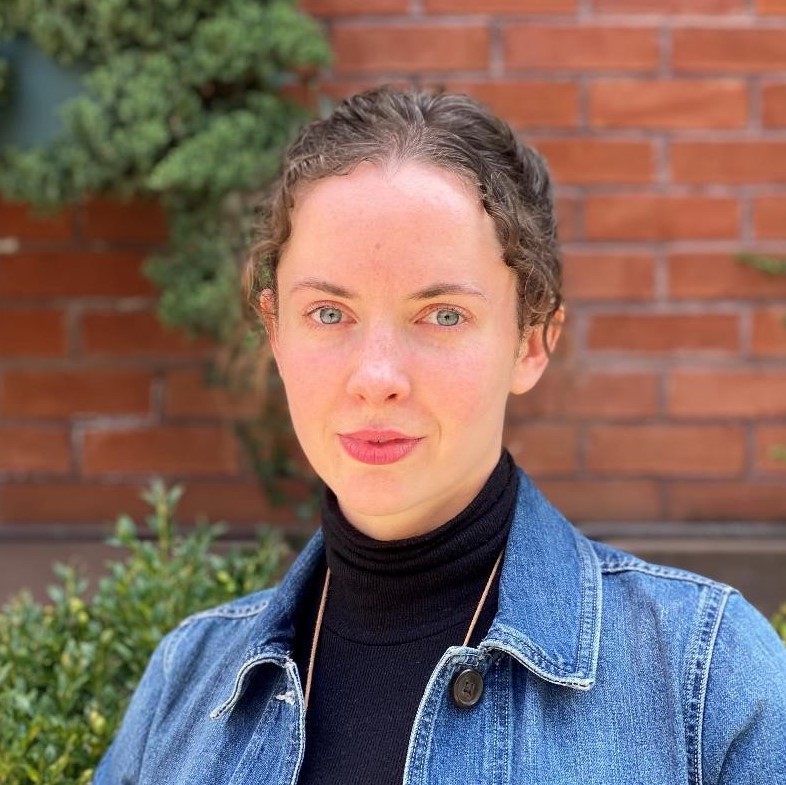
Mary Kate Donovan is an Assistant Professor of Spanish in the Department of World Languages and Literatures at Skidmore College where she teaches courses on Spanish literature, cinema, and visual culture. Her research focuses on race, migration, and popular culture in modern and contemporary Spain and has appeared in journals including the Arizona Journal of Spanish Cultural Studies, Bulletin of Hispanic Studies, Journal of Spanish Cultural Studies, and Revista de Estudios Hispanicos. Currently, she is working on a book project that studies representations of the Chinese and Chinese-descendent in contemporary Spain.
EUNICE S. FERREIRA

Eunice S. Ferreira is Associate Professor in the Theater Department where she directs and teaches. She earned her Ph.D. in Theater from Tufts University and was interviewed this fall for a length feature on her work in the 2020 graduate newsletter.
Her areas of research, teaching, and directing include: Black theater, translation studies, theater history, mixed race performance, multilingual performance, theater for social justice and change, musical theater, and devised theater. As a theater historian, Dr. Ferreira focuses on the intersections of theatrical performance and issues of race, gender, culture, language, and national identity with a special focus on Cabo Verde, West Africa.
As a scholar artist, she has also produced, directed, and choreographed a variety of plays and musicals, including the multilingual premiere of The Orphan Sea by Caridad Svich at Skidmore. She has published in U.S. based and international journals including Theatre Journal, African Theatre: Shakespeare in & out of Africa, The Journal of Cape Verdean Studies, and Moving Worlds. Her translation of Alone Onstage in collaboration with Christina S. McMahon, is the first English-language publication of a play from the Cape Verde Islands. Her recent chapter, “Setting a Global Table with Multilingual Theater,” is published in Casting a Movement (Routledge, 2019) and her first book, Crioulo Performance: Remapping Creole and Mixed Race Theatre, will be published by Vanderbilt Press. She is Vice-President/Conference Planner for the Black Theatre Association (BTA) of the Association for Theatre in Higher Education where she chaired an ad hoc committee to reframe the conference to center on anti-racist practices.
JUAN NAVEA
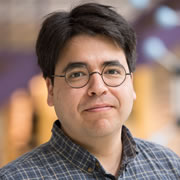
Juan G. Navea, Associate Professor of Chemistry, teaches primarily General Chemistry and Physical Chemistry. He received his B.S. in chemistry (2000) from Universidad Central de Venezuela and his Ph.D. in physical chemistry (2006) from Baylor University, where he studied molecular clusters using laser spectroscopy and quantum chemistry. His postdoctoral fellowship at the University of Iowa concentrated on the study of the chemistry and physics of atmospheric aerosols.
Dr. Navea's research investigates the effects of particles and solar radiation in the atmosphere and ocean. Since joining the Skidmore faculty, Dr. Navea’s scholarship has resulted in 14 peer-reviewed publications with undergraduate coauthors in journals such as Physical Chemistry Chemical Physics, Journal of Physical Chemistry, Langmuir, and Environmental Chemistry. He has also recently been awarded a Research in Undergraduate Institutions (RUI) grant from the National Science Foundation, serves as a Co-PI on a recent NSF Major Research Instrumentation (MRI) Program award and an NSF Center for Aerosol Impacts on Climate (CAICE) award, and serves as PI on an American Chemical Society Petroleum Research Fund award.
KIMBERLEY FREDERICK

Kimberley Frederick, Professor of Chemistry, has been at Skidmore College since 2009. She earned her B.A. (1991) from Lawrence University and her Ph.D. (1996) from Purdue University in analytical chemistry. Her primary teaching responsibilities are in General Chemistry and Analytical Chemistry. She has also taught courses in Forensic Science, Environmental Chemistry, as well as a course in Art, Archeology and Forensics. She regularly participates in the College’s Scribner Seminar Program.
Dr. Frederick’s research is in the development of microscale automated methods of analysis using microfluidic or “lab on a chip” technology. She has worked with over 100 students in her research, and this work has resulted in 20 papers with undergraduate coauthors. Her research has been supported by the National Science Foundation, Camille and Henry Dreyfus Foundation, Research Corporation for Scientific Advancement, Department of Defense, the Pittsburgh Conference and Merck/AAAS with grants that total more than $2 million. She also engages in education research that investigates new ways to increase student learning and engagement using methods such as lab-driven investigations, open problem solving and service learning.
MADUSHI RATHTHAGALA
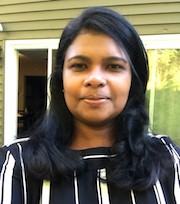
Madushi Raththagala, Ph.D., is an Assistant Professor of Chemistry at Skidmore College. She earned her Doctorate in Chemistry from Michigan State University and B.Sc (Honors) in Biochemistry and Molecular from University of Colombo, Sri Lanka. Before joining Skidmore College in 2017, she was a postdoctoral researcher at University of Kentucky and the Johns Hopkins University. Madushi's research interests emphasize the general area of structural biochemistry, using biophysical and biochemical approaches to characterize proteins involved in reversible phosphorylation of carbohydrates. She is particularly interested in understanding the molecular mechanisms by which glucan phosphatase Starch Excess4 regulate starch phosphorylation in plant systems. Starch Excess4 is essential for starch degradation and its absence leads to accumulation of starch granules in plant leaves.
Madushi’s current studies focus on unraveling the mechanistic details of how glucan phosphatases contribute to the regulation of transitory starch metabolism. Focusing on specific starch engagement and activity, students in her group will employ a variety of biophysical techniques including x-ray crystallography, small angle x-ray scattering, hydrogen deuterium mass spectroscopy and differential scanning fluorimetry to study Starch Excess4. Her efforts are to remove the key gaps in knowledge in reversible starch phosphorylation with the hope of developing a new strategy to utilize starch in an industrial setting and future biofuel research.
SARAH FRIEDLAND
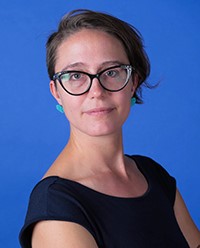
Sarah Friedland received her BA from Sarah Lawrence College and the International School of Film and Television in Cuba and her MFA from the Integrated Media Art Program at Hunter College. Her documentary films and installations are concerned with personal stories that reveal larger histories and intricacies about place and society. Friedland's works have screened widely in the US and abroad and have been supported by grants including the Jerome Foundation, the Paul Newman Foundation, the Ford Foundation Just Films, and the New York State Council on the Arts. In 2009, after the debut of her feature documentary Thing With No Name, she was named one of the "Top 10 Independent Filmmakers to Watch" by the Independent Magazine. She is a recipient of the 2014 Paul Robeson award from the Newark Museum for her feature documentary The Rink, which aired on PBS (WNET/NJTV) in 2017. Her documentary Jeepney (directed by Esy Casey produced by Esy Casey and Sarah Friedland) was broadcast on PBS (World Channel) in 2015. She is currently working on a feature documentary titled Lyd In Exile, which she is co-directing with Rami Younis, and which was selected to pitch at the DocCorner Market at the Cannes Film Festival in 2018. She has received residencies and fellowships from the Center of Contemporary Art in Pont- Aven, the LABA House of Study, the MacDowell Colony, and The Palestinian American Research Center. Friedland is a member of the Meerkat Media Collective and the Director of the MDOCS Storyteller's Institute at Skidmore College.
CHRISTOPHER G. VECSEY
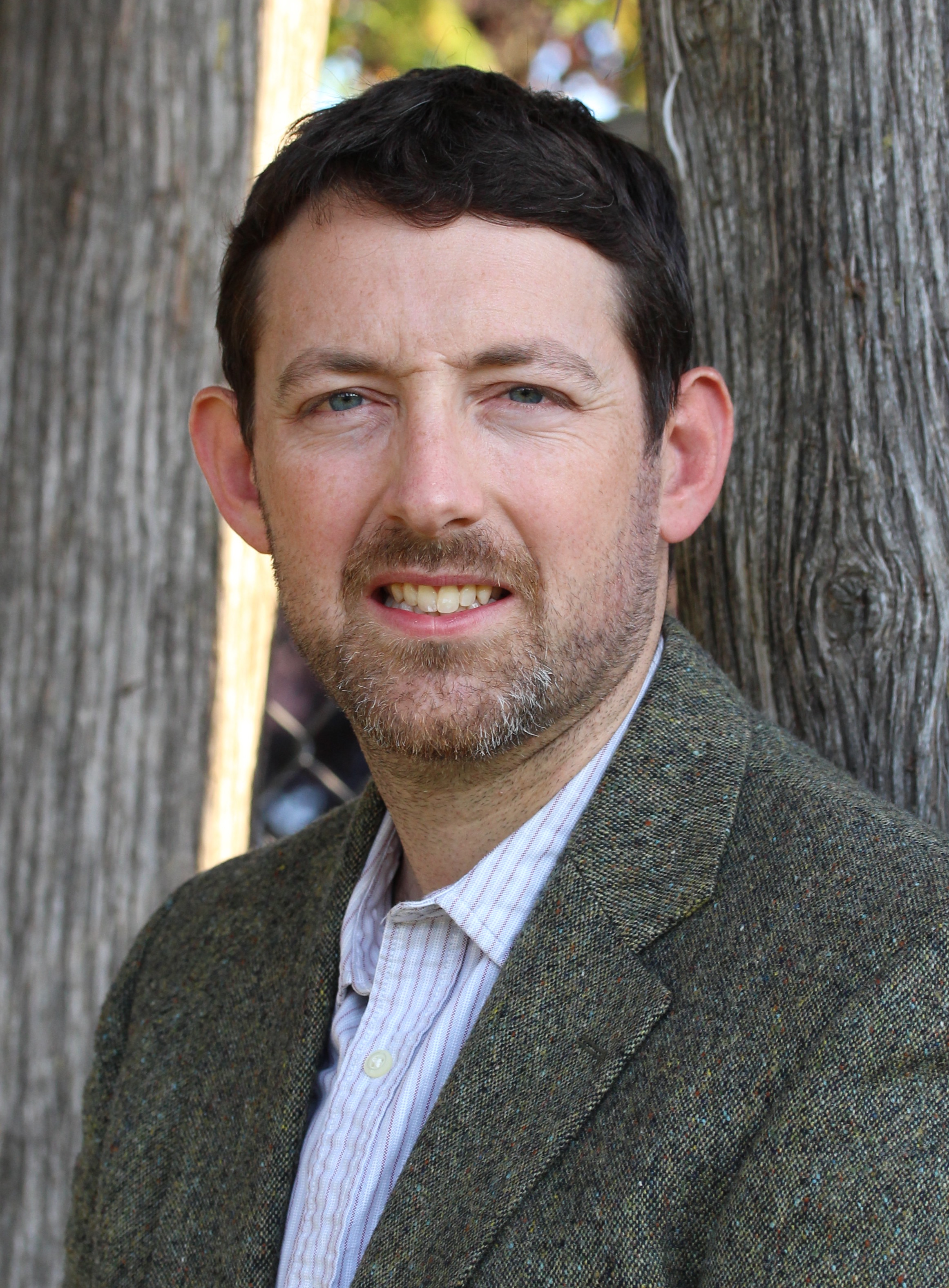
Christopher G. Vecsey, Ph.D., is an Assistant Professor of Neuroscience at Skidmore College. He earned his Doctorate in Neuroscience from the University Of Pennsylvania and a B.A. in Neuroscience from Amherst College. He was then a Postdoctoral Fellow at Brandeis University and a Visiting Assistant Professor at Swarthmore College before arriving at Skidmore. Chris has studied a wide variety of neuroscience topics, ranging from the epigenetic mechanisms involved in memory in the mouse to the neuropeptide signaling mechanisms that control sleep and wakefulness in the fruit fly. The research in his lab at Skidmore focuses on studies of sleep control mechanisms in fruit flies. By using a combination of behavioral, genetic, cellular, and molecular approaches, he attempts to answer questions such as, “How do external and internal cues dictate an animal’s sleep/wake patterns? How does sleep deprivation impact these signals?”
Chris recently published a research article entitled “Optogenetic activation of short neuropeptide F (sNPF) neurons induces sleep in Drosophila melanogaster” in the journal Physiology & Behavior with four undergraduates (one of whom was first author) and his lab technician, Debra Possidente. He also traveled to the Neurobiology of Drosophila conference at Cold Spring Harbor Laboratories in October 2019, where he presented a poster titled "Effects of light color on sleep in Drosophila melanogaster" with two Skidmore undergraduate co-authors.
SARAH DIPASQUALE
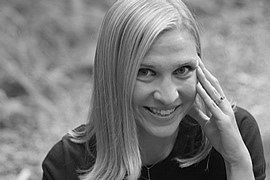
Sarah DiPasquale PT, DPT, is an Assistant Professor and Associate Chair of Dance at Skidmore College. She earned her Doctorate in Physical Therapy from Sage Graduate School and a B.S. in Health and Exercise Science from Syracuse University. As a dancer, she trained at The Center for Ballet and Dance Arts (Syracuse, NY), the Boston Conservatory, and danced professionally with the Ellen Sinopoli Dance Company.
Sarah’s performance career ended early due to injury, and she now focuses her passion for dance into educating others. She works zealously to create opportunities to make dance training easily accessible and available to all people. Her scholarship focuses primarily on the effects of dance training on people who are differently-abled and at-risk youth. Sarah has recently published work in The Journal of Dance Education, Performance Enhancement & Health, Arts& Health, Sports, Medical Problems of Performing Artists, and has presented her research at the International Association of Dance Medicine and Science Conferences (IADMS) and the American Physical Therapy Association National Convention.
K. AURELIA BALL
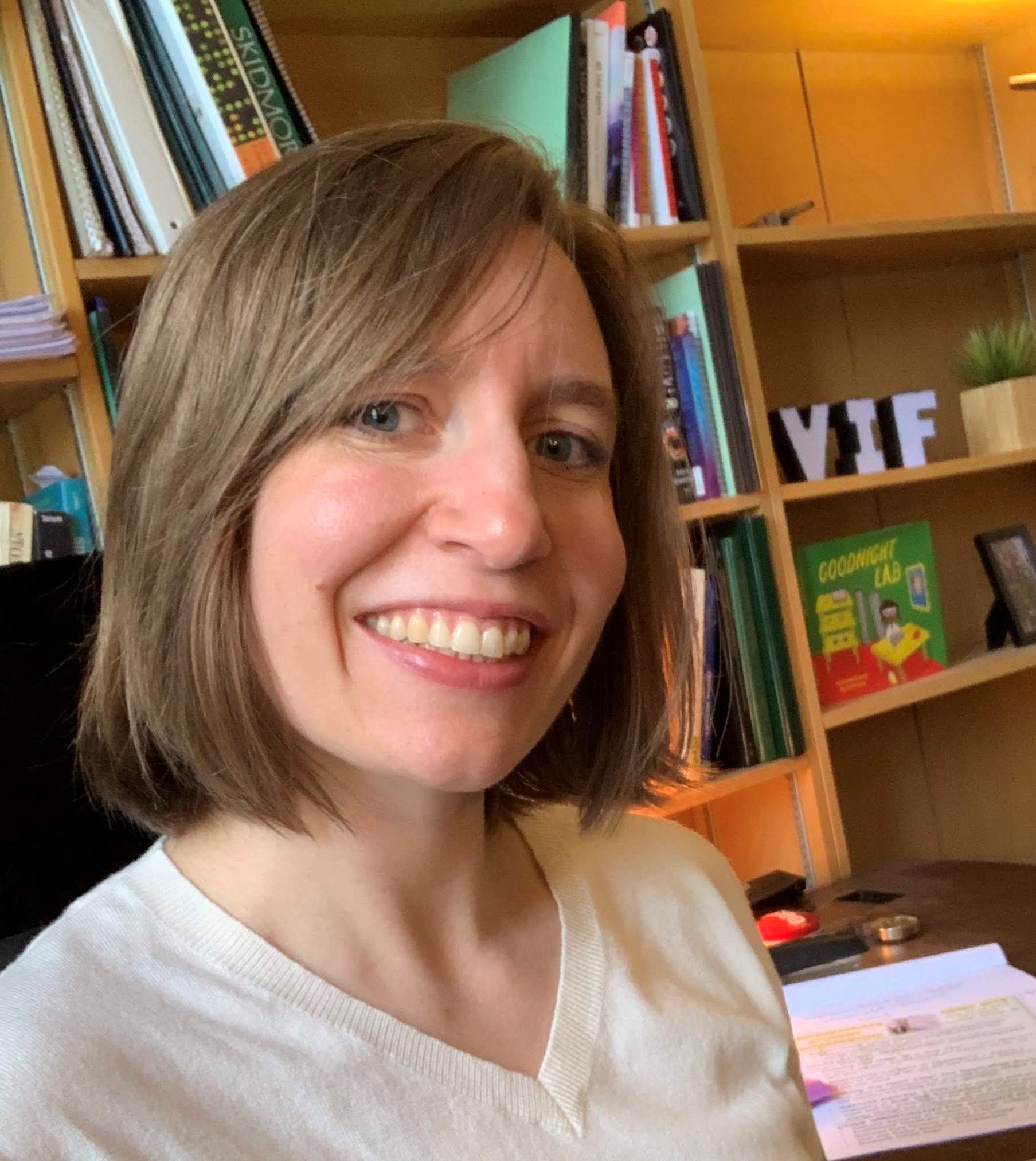
Dr. K. Aurelia Ball began working as a chemistry professor at Skidmore College in the fall of 2016. She received a Bachelor of Arts from Middlebury College and attended graduate school at the University of California, Berkeley for biophysics, working specifically with intrinsically disordered proteins using molecular dynamics and NMR spectroscopy. After completing her Ph.D., Dr. Ball worked as a postdoctoral fellow at the University of California, San Francisco before coming to Skidmore.
Dr. Ball is a member of MERCURY, a consortium of computational chemists doing research at undergraduate institutions, and is an associate with the Molecular Sciences Software Institute.
Dr. Ball’s computational biochemistry research program uses computer simulations and other computational methods to study how intrinsically disordered proteins (IDPs) interact with folded proteins in the context of disease, or as part of normal cellular function. IDPs are different from typical folded proteins in that they lack a single well-defined structure and instead dynamically occupy many alternate structures. This research draws on knowledge from physics, chemistry, biology, and computer science to understand the fundamental physical principles governing interactions between disordered and folded proteins and how these interactions are important for their function.
MICHELLE PAQUETTE-DEUEL

Michelle Paquette-Deuel is Director of Skidmore’s Pre-College Program in the Liberal and Studio Arts and Associate Director of Academic Programs and Residencies. Michelle earned a BA in English Literature from Trinity College and a Master’s degree from Skidmore in Non-Fiction Writing and Visual Art.
Prior to Skidmore, Michelle taught English as a Second Language in the Czech Republic and founded an online art gallery for emerging artists. In addition to directing the summer Pre-College Program, she develops artist/scholar residencies throughout the academic year.
Michelle currently serves on the Board of the Saratoga Springs Preservation Foundation and co-chairs the Saratoga County Latino Community Advocacy Program’s Visión steering committee. She enjoys spending free time in the Adirondacks and Lake George with her husband and dogs.